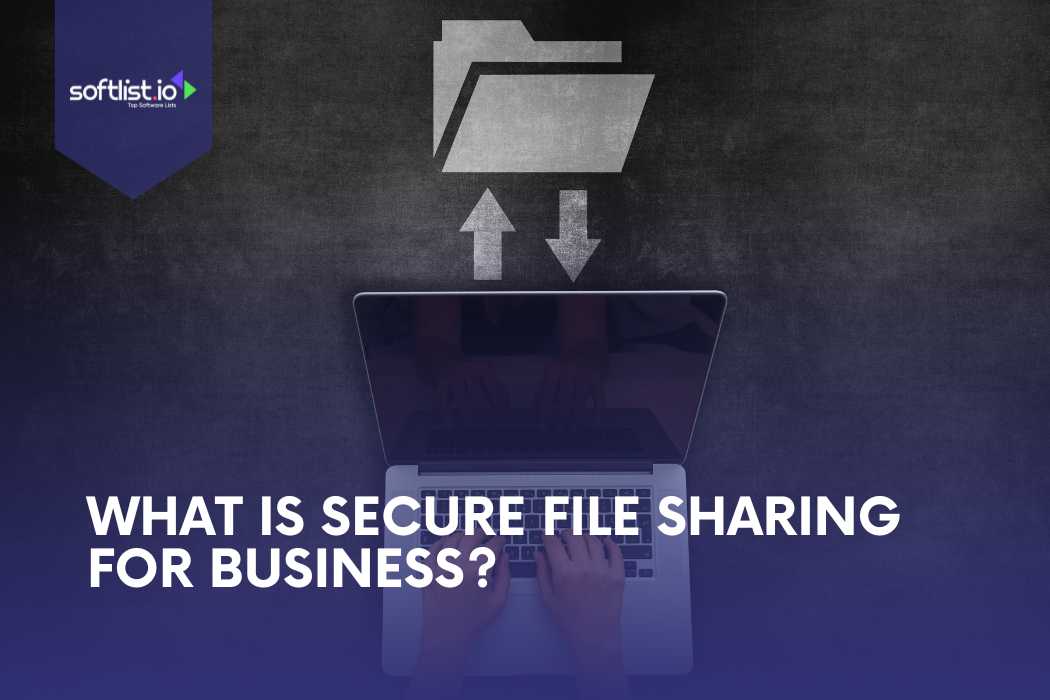Keeping private data safe from people who shouldn’t have access to it is important for businesses to share files securely in this digital world.
Share files safely with clients, partners, and team members for businesses. Insecurely sharing files can lead to data breaches, money losses, and damage to your reputation.
Anytime you know how to share files safely and with the right tools, you can keep your business data safe. How to share files safely with clients, the best ways to share files safely, and why it’s important for businesses to use secure file sharing services are all covered in this article.
Key Takeaways
- Definition and Benefits: Secure file sharing for business is essential to protect sensitive information from unauthorized access. It involves using reliable methods and tools to ensure data privacy and integrity during transfers.
- Best Practices for Secure Sharing: Implement strong passwords, enable two-factor authentication, and limit file access to authorized individuals. Regularly update software to protect against vulnerabilities.
- Setting-Up Secure File Transfers: Choose tools with strong encryption and user authentication. Encrypt files before transferring and use audit trails to monitor activities.
- Safest File Transfer Apps: Apps like Signal and Tresorit offer high-level security features, including end-to-end encryption and user authentication. Choose apps that fit your specific needs and integrate well with your systems.
- SFTP vs. Email: SFTP is generally safer than email for transferring sensitive files. It offers end-to-end encryption and secure authentication, making it ideal for compliance with data protection regulations.
- Future Trends: Expect increased use of AI-driven security measures, advancements in encryption technologies, and integration with blockchain for secure and transparent file sharing solutions.
What is the Most Secure File Sharing?
Source: Canva Pro
Finding the right solution is essential when it comes to sharing files safely. Secure file sharing sites protect your data with strong encryption, strict access controls, and full user authentication.
Top Secure File Sharing Solutions
- Dropbox Business
- Encryption: Dropbox Business uses AES 256-bit encryption for files at rest and SSL/TLS for data in transit.
- Access Controls: Provides detailed permissions settings to control who can view or edit files.
- User Authentication: Supports two-factor authentication (2FA) for enhanced security.
- Additional Features: Audit logs and remote device wipe.
- Google Drive with G Suite
- Encryption: Google Drive encrypts files at rest using AES 256-bit encryption and in transit using SSL/TLS.
- Access Controls: Detailed sharing settings to manage file access.
- User Authentication: Offers 2FA and integration with Google’s robust security measures.
- Additional Features: Advanced data loss prevention (DLP) and enterprise-level admin controls.
Criteria for Secure File Sharing
- Encryption Standards: Strong encryption methods such as AES 256-bit ensure that your data is protected from unauthorized access.
- User Authentication: Two-factor authentication (2FA) and single sign-on (SSO) are critical for verifying user identities.
- Access Controls: The ability to set granular permissions helps to control who can access or edit your files.
- Compliance: Ensure the platform complies with relevant data protection regulations (e.g., GDPR, HIPAA).
How Do I Share Files Securely with Clients?
Source: Canva Pro
Sharing files securely with clients involves using the right methods and adhering to best practices to ensure that your data remains protected during transit and storage.
Best Practices for Secure Client File Sharing
- Encrypt Files: Encrypting files before sharing adds an additional layer of security.
- Tools: Use tools like VeraCrypt, BitLocker, or 7-Zip for encryption.
- Use Secure Platforms: Choose file sharing services known for their security features.
- Examples: Dropbox Business, Google Drive with GSuite, and, OneDrive for Business.
Tips for Client Communication Security
- Password Protection: Always protect shared files with strong, unique passwords.
- Tips: Use a combination of letters, numbers, and symbols for strong passwords.
- Two-Factor Authentication (2FA): Enabling 2FA adds an extra layer of security.
- How to Set Up: Most secure file sharing platforms offer easy 2FA setup options through mobile apps or email.
What is a Secure File Sharing Service?
Source: Canva Pro
A secure file sharing service is a platform that provides tools and features to ensure that your files are shared safely and securely. These services are designed to protect data from unauthorized access and breaches.
Definition and Importance
- Secure File Sharing Service: These services use advanced encryption methods, access controls, and user authentication to protect files during transfer and storage.
- Benefits for Businesses: Using a secure file sharing service enhances data security, ensures compliance with regulations, and fosters trust with clients and partners.
Examples of Secure File Sharing Services
- Tresorit
- Key Features: End-to-end encryption, role-based access control, and zero-knowledge authentication.
- Use Cases: Ideal for businesses that require high-security standards for sensitive data.
- Sync.com
- Key Features: AES 256-bit encryption, 2FA, and granular user permissions.
- Use Cases: Suitable for businesses of all sizes, especially those needing secure cloud storage and sharing.
By implementing secure file sharing practices and using reliable services, businesses can protect their data, maintain client trust, and ensure regulatory compliance. Following these guidelines can help safeguard sensitive information and improve overall data security in your organization.
What is File Sharing in Business?
Source: Canva Pro
File sharing in business is a critical component for effective collaboration and efficient workflow. It allows team members to access, share, and work on documents in real-time, regardless of their location.
Role of File Sharing in Business Operations
- Collaboration: Secure file sharing enhances teamwork by allowing multiple users to access and edit documents simultaneously.
- Example: Cloud-based platforms like Google Drive and Microsoft OneDrive enable real-time collaboration, making it easy for teams to work together on projects from different locations.
- Efficiency: By streamlining the process of sharing files, businesses can reduce downtime and increase productivity.
- Example: Automated workflows and notifications in platforms like Dropbox Business help keep projects on track and ensure timely updates.
Risks of Unsecured File Sharing
- Data Breaches: Unsecured file sharing can lead to data breaches, resulting in the loss of sensitive information and financial damage.
- Impact: Data breaches can erode customer trust and damage a company’s reputation.
- Compliance Issues: Failing to secure file sharing processes can lead to non-compliance with data protection regulations, such as GDPR or HIPAA.
- Consequences: Non-compliance can result in hefty fines and legal penalties.
Is SFTP Safer Than Email?
When it comes to transferring sensitive files, SFTP (Secure File Transfer Protocol) is often considered safer than traditional email. This section explores why SFTP might be the better choice for secure file transfers.
Understanding SFTP (Secure File Transfer Protocol)
- How SFTP Works: SFTP operates over the SSH (Secure Shell) protocol, providing a secure channel to transfer files.
- Encryption: Encrypts both the command and data channels, protecting data in transit.
- Authentication: Uses SSH keys or password-based authentication for secure access.
- Benefits of Using SFTP:
- Security: Offers high-level encryption and secure authentication methods.
- Reliability: Ensures data integrity during transfer, reducing the risk of data loss or corruption.
Comparing SFTP and Email for File Transfers
- Security Comparison:
- Email: While email can be encrypted, it often lacks end-to-end encryption and can be susceptible to interception.
- SFTP: Provides end-to-end encryption, making it a more secure option for transferring sensitive data.
- Use Cases:
- When to Use SFTP: Ideal for transferring large files, sensitive data, or when compliance with data protection regulations is required.
- When to Use Email: Suitable for less sensitive information or when quick, convenient sharing is needed.
Final Thoughts
Implementing secure file sharing practices is essential for protecting sensitive information and ensuring compliance with data protection regulations. Here are the main points to remember:
Choose Secure Services
- Select file sharing platforms that offer robust encryption, access controls, and user authentication.
- Examples: Dropbox Business, Google Drive with G Suite, and OneDrive for Business.
Implement Best Practices
- Use strong passwords and enable two-factor authentication.
- Encrypt files before transferring them and ensure secure communication channels.
Regular Monitoring and Updates
- Regularly monitor and update your file sharing tools to protect against vulnerabilities.
- Enable audit trails to track file access and sharing activities.
Find out about the safest file sharing tools and how they can keep your business data safe. Protect the information about your business right away.
Our Deals page has great deals on safe file sharing tools that can help your business save money. You can find the top 10 solutions that fit your needs on our Top Product Reviews page.
FAQs
What is the Most Secure Way to Share Files with Clients?
Using encrypted file sharing services with robust access controls and user authentication.
How Can I Ensure My Files Are Secure When Sharing with Clients?
Use encryption, password protection, and secure file sharing platforms.
What are the Key Features of a Secure File Sharing Service?
Strong encryption, user authentication, access controls, and compliance with data protection regulations.
Is SFTP Safer Than Using Email for File Transfers?
Yes, SFTP provides end-to-end encryption and secure authentication, making it safer than email.
How Often Should I Update my File Sharing Software?
Regularly update your software to ensure you have the latest security patches and protection against vulnerabilities. Automatic updates are recommended when available.






